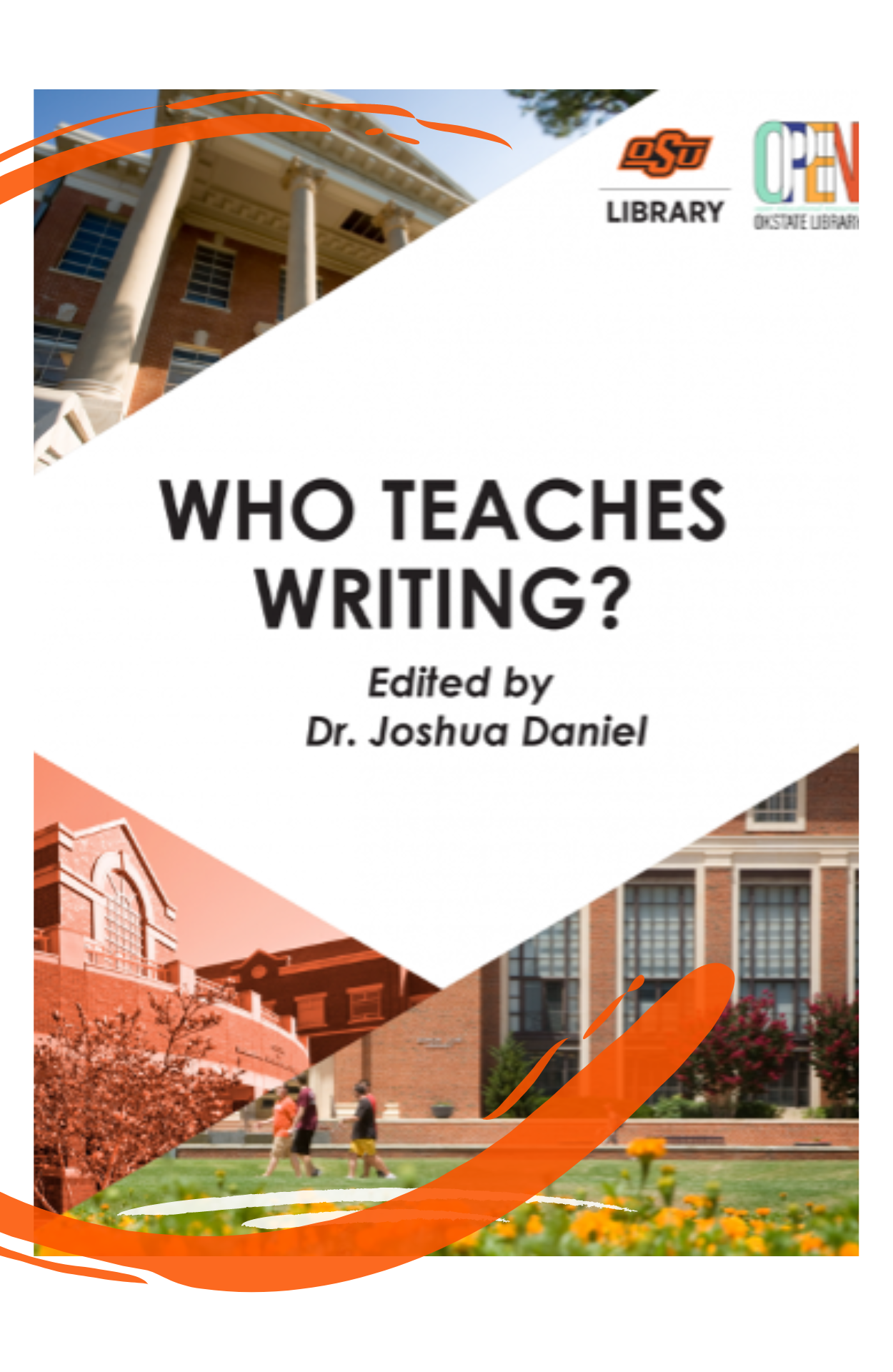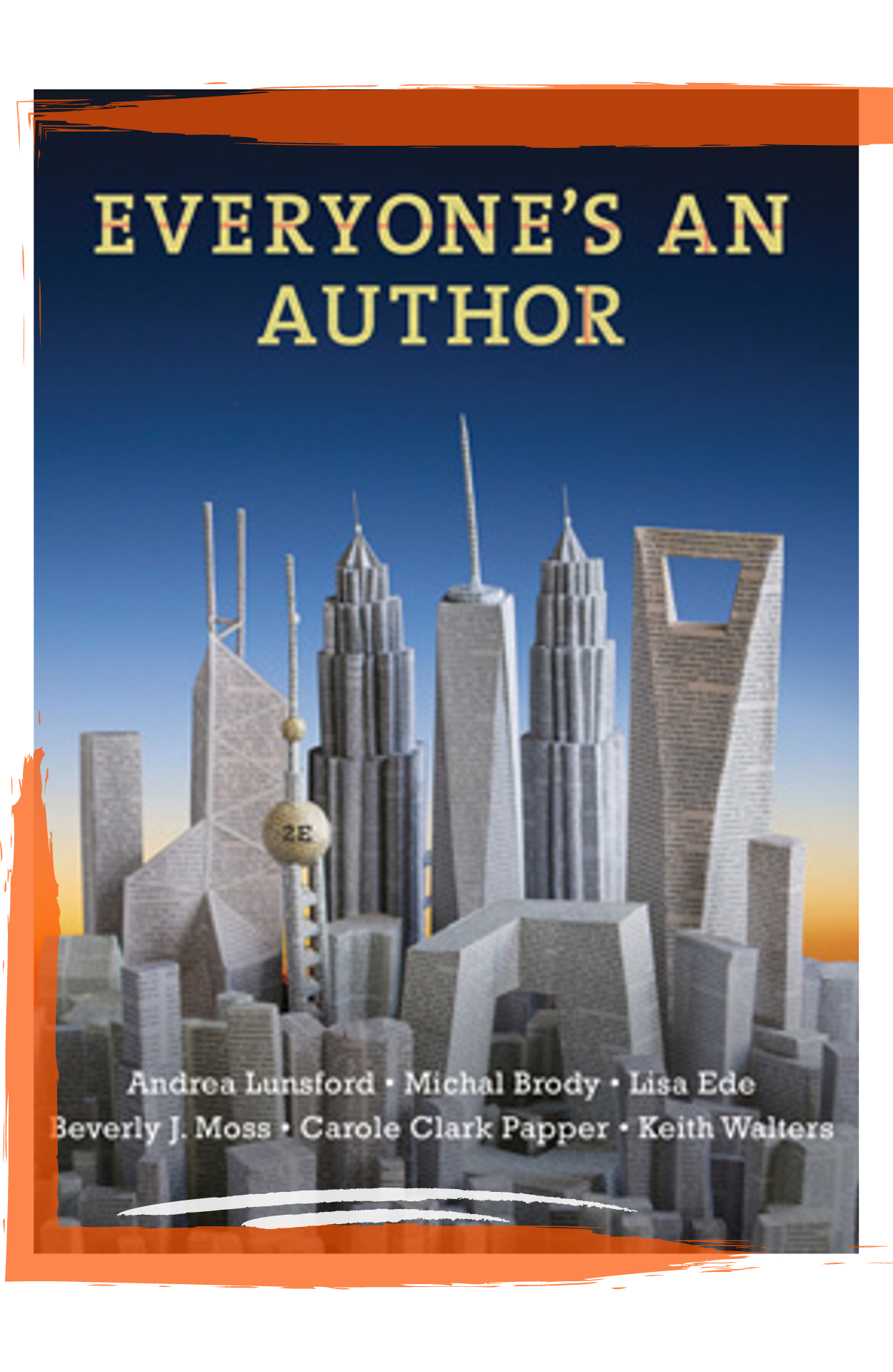At Oklahoma State University, we use an outcomes-based approach to the teaching of composition. Our program outcomes are loosely derived from the Council of Writing Program Administrator's Outcomes Statement for First-Year Composition, and from other contemporary FYC pedagogy. Our outcomes articulate what we want our students to know and to do by the end of each course. While these overarching outcomes are important to the structure of our courses, they are also personal—how will you approach these outcomes? What do these outcomes make you think of? How do they relate to what you already know, what you would like to deepen your understanding of, and what you have not yet learned, but are excited to? Further, our composition courses emphasize the processes of creating, which are upheld through our outcomes. While we celebrate the end results and the texts you have created through engagement with these outcomes, we want to stress the importance of you developing your own relationship with composition and rhetoric, and with the writing skills and practices we explore throughout our courses.
English 1113 Outcomes
The outcomes below are organized by the pedagogical definition of the specific outcome and the possible course projects and guiding questions students might engage with to achieve the specific outcome:
Outcome
By the end of the course, you will learn to narrate an event or series of events in which you describe settings, utilize descriptive/sensory details, and suggest a main point to the narrative through such details.
In the Classroom
Do you enjoy storytelling? Do you like reading memoirs or autobiographies? Are you an avid journal-keeper? Are you interested in exploring the ways in which different modalities (songs, graphic novels, visual artwork, movies, books) utilize their forms to tell stories? What is an experience, a memory, or a story you’ve always wanted to tell? The "narrative writing" unit offers students the opportunity to experience many different modes of storytelling, and to practice sharing their own stories.
Outcome
During this course, you will learn to report information through the use of primary research in which you shape your topic for a specific audience, define key terms, incorporate credible research accurately, and shape that information in ways that are rhetorically appropriate for your audience with respect to tone, organization, style, etc.
In the Classroom
What is a topic/text you know a lot about, you enjoy reading about, and you enjoy talking about? Or, what is a topic/text you would like to know more about? Think about fandoms, clubs, or even “what side of TikTok” you find yourself on—how do people in these spaces communicate with one another, and then share that information with people who are not a part of these spaces? These questions correspond to possible classroom assignments that ask you to engage with the outcome through mediums that you are familiar with and utilize everyday. During the "primary research" unit, instructors will offer students the opportunity to practice gathering and incorporating research into their writing assignments.
Outcome
By the end of this course, you will analyze a written/textual product and utilize evidence from that analysis to answer a specific inquiry question about that product using insights derived from the analysis.
In the Classroom
Have you ever read a scholarly text, a book, watched a movie, listened to an album, and thought—what is being said here? How do authors and creators utilize the expectations of specific genres and modalities to communicate a message, an argument, a claim? And, how do these people begin their creation process? What is the process of creating an inquiry question or generating a thesis statement? During the "analyzing writing" unit, instructors will assist you as you take a subject or a field of study that you are personally interested in and generate your own arguments, questions of inquiry, and thesis statements.
Outcome
In this course, you will evaluate a written/textual product in which you apply rhetorically appropriate evaluative criteria to your review of the product in order to provide your audience with relevant information about the subject of your evaluation.
In the Classroom
Is there a text, a movie, an album, a piece of artwork that you really enjoy, but others don't? Or, is there a text that you don't enjoy, and others really do? What are specific criteria that you look for when engaging with genres and different mediums to "evaluate" whether or not you like something? Where do those expectations come from? And further, what are larger, community-held expectations for text creation in specific genres and mediums? During the "evaluating writing" unit, your instructor will work with you as you explore expectations and evaluative criteria for specific genres of writing.
Outcome
This course asks you to draft, revise, and edit multiple drafts of writing in various genres to produce textual products that are rhetorically effective with respect to considerations such as organization, style, tone, grammar and mechanics, etc.
In the Classroom
How do you revise and edit your writing? What writing processes have worked best for you and your personal expectations for your writing? What skills would you like to build on and become more comfortable utilizing? During all units, you will work with your instructor and your classmates to develop your own revision practices. Through peer revision, personal reflection, and instructor feedback, you will work to explore why we edit and revise our work in the first place, and where specific expectations for certain types of writing come from.
Textbooks
The texbooks pictured on this page are utilized in English 1113 courses! Everyone's An Author explores the ways in which everyday student writing and "academic" writing overlap across various writing modalities. Visit the OER page on this site to learn more about Who Teaches Writing? and other open educational reading materials. Please note that not all English 1113 courses utilize these texbooks in the same way.
